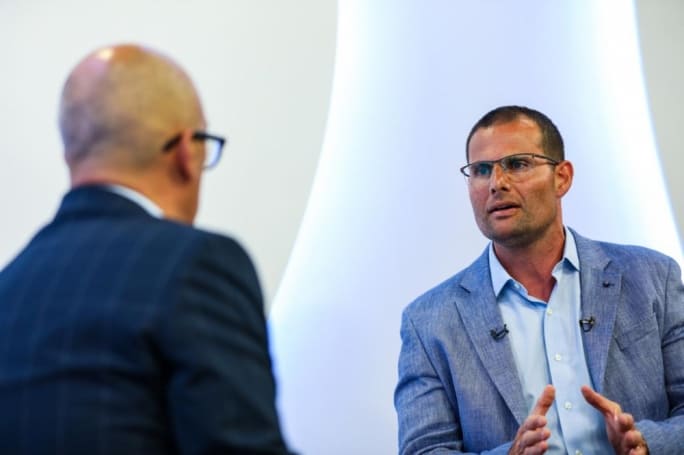While I have no right to interfere, I will insist that all institutions do their work in good time. – Robert Abela, 16 February 2020

In February, addressing an extraordinary general conference to mark the first 100 years of the Labour Party, Robert Abela told his faithful that he had set up a good governance committee to implement reforms so that what happened before would not repeat itself. He stressed that he expected Malta’s institutions to function properly. “I don’t want to hear excuses, just hard work and results,” he said.
But Robert Abela believes that the public inquiry into the assassination of Daphne Caruana Galizia should have ended on 15th December. Answering questions by the media Abela said that the board of inquiry has already had enough time to fulfil its obligations. The inquiry was given a three-month extension last September to make up for the delays caused by covid-19. “I believe the inquiry has already had enough time to fulfil its work and I have not received any requests to extend,” our Prime Minister stated. The inquiry was set up after pressure by the Council of Europe as Joseph Muscat kept dragging his feet on accepting to the Caruana Galizia’s family request on the basis of the human rights convention.
The Prime Minister contradicts himself. Back in October, the government refused a motion presented by the Opposition for the setting up of a public inquiry into the Electrogas power station deal which was criticized by the Auditor General. Abela replied that he has ‘complete and blind faith in the country’s institutions, the police commissioner and the whole judiciary. When you call a public inquiry you are sending the message that the institutions are not working.” He said, “I am against a public inquiry on any subject – that is why I made sure our institutions work robustly and independently.”
He did not elaborate on these famous changes, because there was only one – the sacking of Police Commissioner Lawrence Cutajar. Seems strange, doesn’t it? But by now we are all accustomed to Abela’s changes of heart, or, put more crudely, U-turns.
Robert Abela got his answer from the Board. “We will continue with the Inquiry as there is more evidence to be gathered.” Robert Abela told the Board that “they have heard enough by now” but the Board replied that only they can decide when they’ve had enough evidence to fulfil their terms of reference. In a decree, the Board said that it had heard more than 100 witnesses in 85 sittings. But the search for the truth “should never be subjected to arbitrary or unilateral time limits that can condition the conduct of those called upon a judge.”
The Board also reminded the Prime Minister that senior police officers told them that data being analysed by Europol will not be available before January. The information could influence the conclusion they have yet to draw up.
A statement by the government attacked the judges for decreeing they will keep hearing evidence. The statement was attributed simply to the ‘Government of Malta’, not in the name of the Prime Minister or any other Ministry. It accused the judges of having arrogated the ‘power to extend the terms of the inquiry ad infinitum’ and the Board ‘would have to carry the responsibility for its decision.’ Subtle. But still a threat.
The Prime Minister is insisting that Malta’s reputation abroad has been ‘repaired.’ He must have missed Pieter Omtzigt’sstatement and failed to read the letter sent by the Council of Europe rapporteur saying that ‘it is a matter of serious concern’ if Malta’s Prime Minister imposes a termination of the public inquiry. Omtzigt said that the independent inquiry was established in fulfilment of Malta’s obligations as outlined in the European Convention for Human Rights to examine whether the state did enough to prevent the journalist’s murder.
The European Federation of Journalists also told Robert Abela that threats to the public inquiry must stop. The EFJ condemned the “continued threats made by the Maltese Government against the independent public inquiry into the circumstances of the assassination of Daphne Caruana Galizia.” The Federation urged the government to respect its commitments under the European Convention on Human Rights and ensure that the inquiry is supported to fulfil its terms of reference, free from any political interference.
Repubblika’s president Robert Aquilina said that the NGO did not call gatherings during the covid pandemic period. But the government should not confuse these precautions with any abating of anger caused by the actions of Robert Abela and his ministers. “We have struggled for three years under the pretext that there can be no justice without change. And that didn’t mean just relocating power from Castille to Burmarrad.”
Robert Abela’s latest challenge to our institutions was his conversation with the Commissioner of Revenue, Marvin Gaerty with ‘information’ about Leader of the Opposition Bernard Grech. Gaerty was recently questioned by the police over messages he exchanged in 2014 to murder suspect Yorgen Fenech in connection with resolving a ‘VAT issue’ out of court.
Robert Abela wants to be above the law. He is now threatening three judges with ‘consequences’ if they do not obey his diktat. Instead of observing the law, the Prime Minister wants them to obey him and stop seeking the truth about the assassination of Daphne Caruana Galizia. Because ‘L’etat? C’est Robert Abela.’
No, Robert. Remember that.